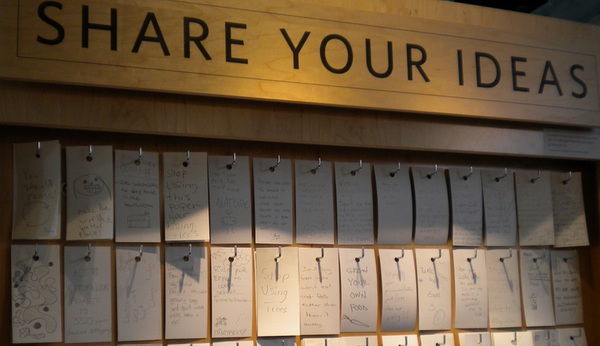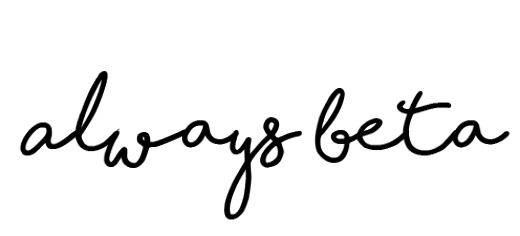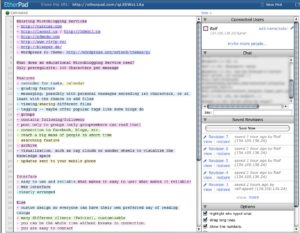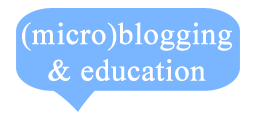 ((Image Source: britbohlinger bei flickr))
((Image Source: britbohlinger bei flickr))
Last month I completed my masterthesis and graduated in the international MA Program ePedagogy Design – Visual Knowledge Building. You can access all the content online within my thesis (blog) and you can also download the linear pdf file.
Why am I sharing the thesis?
 I won’t call it a excellent MA Thesis nor the evaluators did. It is a product which has to fulfill certain formal criteria within a formal learning program. And much more important it needs to be finished one day and there was a specified deadline. In my opinion some theories should be extended and much more connected with the practical suggestions. But I couldn’t invest more time into this work before the date when it has to be submitted. I’d say the text is always beta and a good startingpoint and overview on blogging in educational contexts. ((Image Source: http://www.flickr.com/photos/pixel-sallo/3617083357/))
I won’t call it a excellent MA Thesis nor the evaluators did. It is a product which has to fulfill certain formal criteria within a formal learning program. And much more important it needs to be finished one day and there was a specified deadline. In my opinion some theories should be extended and much more connected with the practical suggestions. But I couldn’t invest more time into this work before the date when it has to be submitted. I’d say the text is always beta and a good startingpoint and overview on blogging in educational contexts. ((Image Source: http://www.flickr.com/photos/pixel-sallo/3617083357/))
I used a lot of online resources. That was only possible because people did’nt mind to share they thoughts and findings.
I’d like to share my thoughts and findings too. I don’t like to keep it just on my computer because it is not the perfect work. May be you have additions on it, just write comments or you can use the references or anything else from my work to enhance yours. You’re welcome!
There is a free registration needed to view the whole work.
Why am I using a blog as container for my thesis?
Of course one reason is that the topic of my work deals with blogging and that blogs could be used as LCMS, so why do not use a blog system to publish the work. Another aspect is that the permalinks, trackbacks and comment features might help you to have an easier way to give feedback or hyperlink and reference specific parts online directly. One more reason is that e.g. the tags are additional navigation elements compared to the linear pdf version.
Thanks…
I just hope you can make use of my work. And hey, thanks for sharing!



 Immer wieder suche ich nach Definitionen. Ich bin sicher auch diese schon einmal verwendet zu haben. Vielleicht kann sie noch mal jemand brauchen!? Hier also die Definition des Web2.0 von Tim O’Reilly himself. Wer es etwas ausführlicher mag liest sich folgenden Artikel durch.
Immer wieder suche ich nach Definitionen. Ich bin sicher auch diese schon einmal verwendet zu haben. Vielleicht kann sie noch mal jemand brauchen!? Hier also die Definition des Web2.0 von Tim O’Reilly himself. Wer es etwas ausführlicher mag liest sich folgenden Artikel durch.

 Next semester I am going to host a
Next semester I am going to host a 
